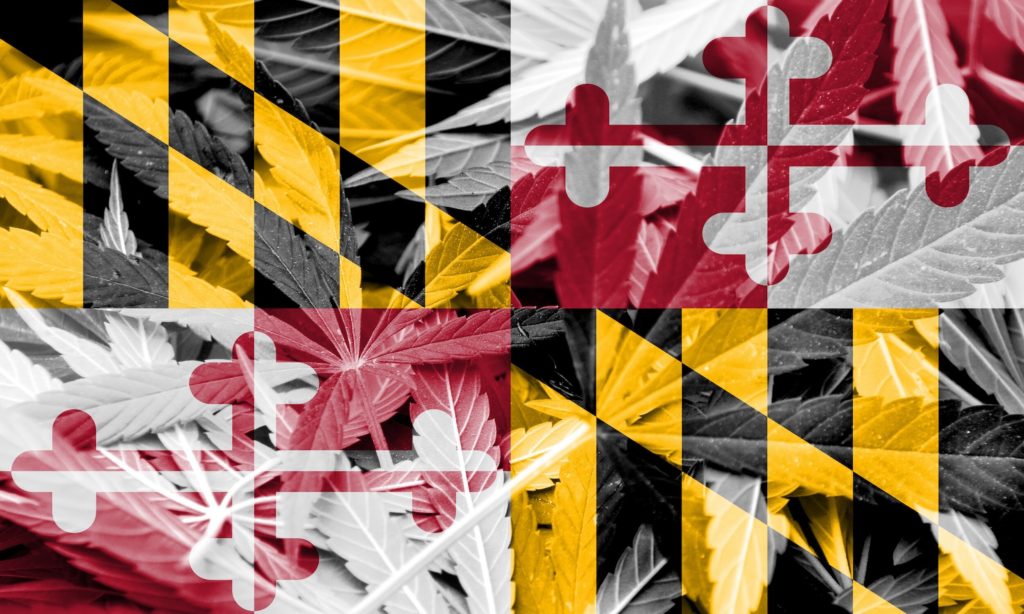The day before a hearing earlier this month regarding Delegate David Moon-sponsored House Bill 1400, an ambitious cannabis bill that would establish legalization of cannabis and allow for home growing in Maryland, Maryland Marijuana Justice (MDMJ) was characteristically honest.
“Join us tomorrow in Annapolis to advocate in support of #HB1400 introduced by @DavidMoon2014,” @MDMJ tweeted out. “We know it won’t pass this session. We are using this hearing as an opportunity for the community to share testimony demanding home cultivation.”
It was a curious hearing even before it began—though now, due to the session ending early because of concerns about the Coronavirus, plenty of bills are unlikely to pass this session—but one that is worth investigating, even if the actual legislation put forth never had a chance.
Namely, Del. Moon’s testimony at a House Judiciary Committee hearing for HB 1400 on March 6 put forth a brash, alternate vision of cannabis legalization for adult use in Maryland that acknowledged the roadblocks such as racial equity while arguing that the delays to “achieve perfection” are creating problems for many right now.
Because there is the Maryland Marijuana Legalization Workgroup the House of Delegates “will end up doing what they recommend,” Moon (a member of the workgroup) said. And the workgroup, by the way, did not recommend legalization for this legislative session.
Still, at the hearing, Moon advocated for why legalization should—and could—happen sooner. Moon explicitly addressed concerns about revenue allocation (many have argued that cannabis revenue could help fund the Kirwan Commission’s recommendations for Maryland’s underfunded schools) and racial equity (regarding ongoing concerns about racial disparity in medicinal cannabis licensing).
“The first is the issue of what to do with future cannabis revenues, and I think a lot of us had been assuming this would be Kirwan money,” Moon said. “But the more I sat in this committee looking at all of the unfunded needs regarding mental health, substance abuse—all of the sort of root cause solutions—I’m becoming convinced that this ought to be our committee’s money and that we have a growing list of problems to address with this funding.”
Moon argued that 25 percent of cannabis tax revenue should go to Kirwan, with 50 percent going to mental health and substance abuse and the remaining 25 percent to, Moon said, “things like body cameras, syringe exchange, pretrial services, and other reentry hiring incentives—things that basically no one ever wants to pay for until we come up with a dedicated funding source.”
And the focus should not only be on medicinal cannabis licenses when it comes to equity, Moon explained.
“The equity conversation has focused primarily on license holders—millionaires, essentially—and there we should have equity,” Moon said. “But I think we need to start focusing on equity on the smaller end of the market in terms of having the opportunity for small business and craft industry, ordinary folks to be able to compete who don’t have access to millions of dollars and investor funds.”
Delegate Darryl Barnes, chair of the Legislative Caucus, who has been advocating for changes to the medicinal cannabis industry, took issue with Moon’s characterization of the licensing issue.
“Looking at where we are in medical cannabis today and the problems that we are having in that industry,” Barnes said. “Wouldn’t you think we’d want to get the medical cannabis portion straight before we contemplate legalizing marijuana?”
“I believe we need to have equity in the licensing process,” Moon said. “[But] I don’t want to hold this up for you know, achieving perfection in some other system that seems to be constantly fraught with problems.”
Moon noted that while this is all figured out, 15,443 Marylanders have been arrested for possession of more than 10 grams since decriminalization—and those arrests disproportionately affect black Marylanders who use cannabis.
“There are still no African Americans participating in this industry,” Barnes said. “Getting it straight is the medical cannabis equity piece, it is taking care of that.”
“Let’s define what getting that straight means. Let’s do it, and let’s get that done in the next year or two,” Moon said. “We rewrote the entire criminal code for the Justice Reinvestment Act in a matter of months. I find it hard to believe there’s only so many licenses and only so many ways you can cut them, so let’s come to a solution that everybody finds acceptable, deploy it, and move on.”
A few Marylanders who use cannabis testified regarding the home cultivation element of HB 1400. The bill would open Maryland, which currently has no home cultivation standards, to growing amounts for personal use. They all stressed access and cost.
Kevin Adams, who takes cannabis for Post-Traumatic Stress Disorder, said he spends around $1,400 a month on medicinal cannabis. His monthly expenses would be even higher, he explained, but he has learned to be a savvy customer and shop primarily on sale days. This often means compromising on the strains he purchases and not always buying the ones that would be the most beneficial to his condition but the most affordable.
“This is extremely burdensome on the average workaday American family, who can actually afford to pay these costs?” he said.
Maryland State Flag on cannabis background by Lukasz Stefanski / Shutterstock

